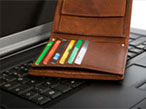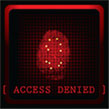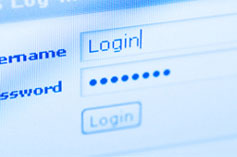Identity Theft and You
According to the Federal Trade Commission (FTC), identity theft occurs when an individual’s personally identifying information (e.g., name and address, SSN, account numbers, etc.), is used without permission, to commit fraud or other crimes. Learn more about identity theft and online security by visiting www.consumer.ftc.gov
Precautions to Protect Your Identity
Use Uncommon Passwords
- Create passwords that do not contain easily available information, such as your mother’s maiden name, birth date, children’s names and birthdates, Social Security Numbers, phone number, pet names, etc.
- Avoid any sort of password that can be easily traced to you.
- Avoid using the same password across different sites and change them as often as possible.
- Secure Your Personal Information
- Whether using a locked file cabinet or other secure location, things such as checks, social security numbers, bills, etc., should be secured to prevent opportunities for theft.
- At work, be sure to keep your personal belongings in a secure place.
Don’t Give Out Personal Information
- Unless you have initiated the contact, do not provide your personal information over the telephone, online or through the mail.
- Ask why certain information is required in any sort of membership or application process.
Guard Your Mail
- Deposit outgoing mail inside your local post office.
- U.S. Postal Service collection boxes should not be used for mailing checks, even if they are located just outside of a U.S. Postal Service building.
- If you go on vacation, put a hold on your mail delivery through the U.S. Postal Service.
Guard Your Trash
- Tear, cut or shred all personal information (e.g., financial statements, expired credit cards, pre-approved credit offers, physician statements, insurance forms, receipts, etc.) prior to throwing it away.
Carry a Limited Number of Credit Cards
- Only carry the credit and/or debit cards you may need during the day.
- Do NOT carry your passport or birth certificate in your wallet unless you are required to do so.
Protect Your Social Security Number
- Do not carry your Social Security Number (SSN) with you.
- Only give out your SSN when absolutely necessary.
- Take precautions when your SSN is on your health or medical card.
- Never put your SSN on your driver’s license or personal checks.
Pay Attention to Billing Cycles and Statements
- Be aware of your billing cycles for all credit cards and other financial bills.
- Follow-up with your creditors if bills do not get to you on time.
- Pay attention to your financial statements and balance your checking accounts on a regular basis.
Review Your Credit Report
- If you find any discrepancy on your report, contact the credit agency and your creditor as soon as possible.

Tips to Prevent Online Theft
The following are some important tips to help you prevent online information theft.
- Update your virus protection program regularly to avoid viruses that may cause permanent damage to your computer.
- DO NOT download files you receive from strangers or click on hyperlinks from people you don’t know.
- Report suspicious e-mail immediately to the “faked” organization.
- Be wary of clicking links on e-mail. Get to a website by typing in the website address rather than using a link emailed to you.
- Use a firewall program to prevent “uninvited guests” from accessing your computer.
- Use a secure browser to guard the security of your online transactions.
- Before you get rid of your computer, be sure to remove ALL the data. Use a “wipe” utility to overwrite the entire hard drive.
- Look for website privacy policies on all sites you frequent. If you don’t see one, consider using another site for your needs.
- Check the security certificate when you are entering personal or financial information into a website. To learn more about website certificates, visit the Cybersecurity and Infrastructure Security Agency website at www.cisa.gov
- Type addresses directly into your browser or use your personal bookmarks.

Reporting Identity Theft
- Contact the companies where the fraud occurred to inform them of the fraud.
- Close the accounts you believe to be affected.
- Contact any one of the major credit bureaus to place a fraud alert on your accounts. The fraud alert will request creditors to contact you before any new accounts are opened or changes are made to your existing accounts.
- File a complaint with the Federal Trade Commission (FTC) as it is the “clearinghouse” for all identity theft claims. Although the FTC cannot bring charges against a thief, it can help to put you in contact with those who can prosecute such a crime. www.identitytheft.gov
Unfortunately, there is nothing that will pinpoint exactly when or where an identity thief may strike. Take the precautions necessary to protect your name and your financial future.
